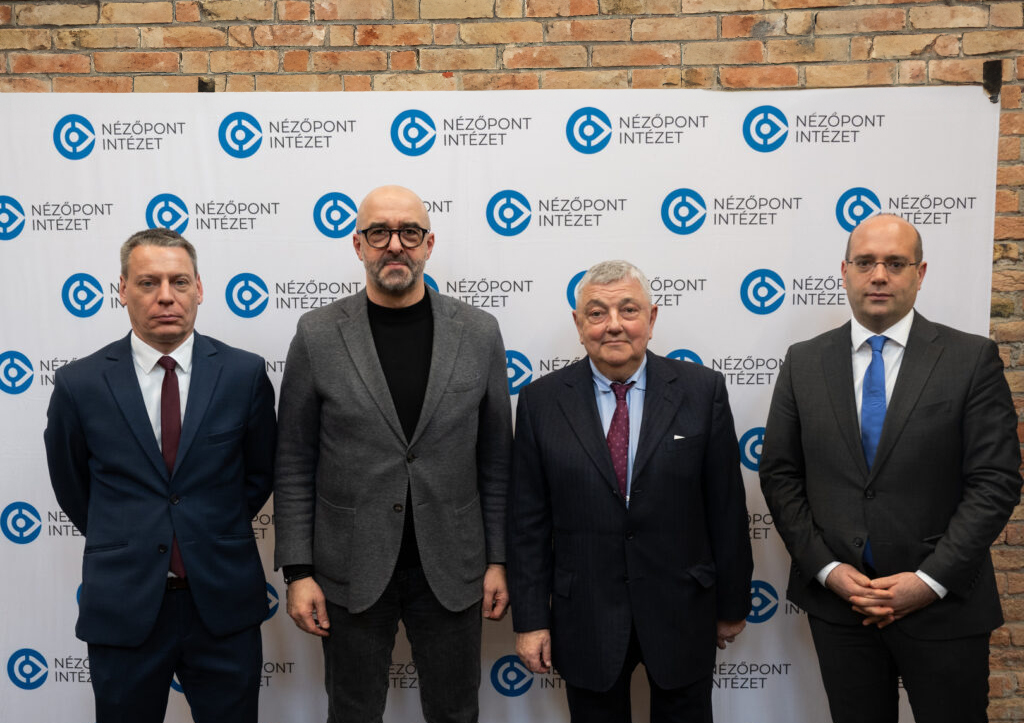The Nézőpont Institute has presented its research on the image of Hungary in the international press, covering 18 countries and 15 language areas, examining 100 politically relevant online and print media products for the year 2023. The domestic political success and political initiatives of Viktor Orbán’s government (family and child protection, gender issues, sovereignty protection, anti-immigration measures), as well as his strong international stance even in the face of the greatest political headwinds, have attracted the interest of global political actors, which has also generated a high level of media interest. The most diverse international challenges (the migration and Covid crisis, the Russian-Ukrainian conflict) and the sovereign Hungarian solutions to them have only further intensified the intense attention focused on Hungary. Even more, the effective (unorthodox) measures that were different from the international mainstream were the subject of sharp political and press attacks against Hungary, albeit often friendly ones as well. In addition to the particular characteristics of the Hungarian model, the Russian-Ukrainian war determined the perception of Hungary in 2023, especially in terms of its positive or negative connotations.
Following the welcome speech of Ágoston Sámuel Mráz, CEO of the Nézőpont Institute, Political Analysis Director Bánk Levente Boros summarised the main findings of the study. The main findings of the research are the following:
- In 2023, the Nézőpont Institute reviewed and analysed in terms of quantity and content a total of 19153 media reports about Hungary from 100 politically relevant online and print media products in 15 language areas covering 18 countries.
- Last year, the most intensive press coverage of Hungary was given by the Russian (697 publications per medium on average), the Italian (327) and the Serbian press (304), while the least coverage was given by the Israeli (44), surprisingly the German (89) and the Slovenian press (111).
- In 2023, the news was dominated by the Russian-Ukrainian conflict and related issues (financial and military support, EU and NATO enlargement, energy supply), while the partly related Hungary-EU relationship (withholding funds, budget amendment), the visit of the Catholic Church leader to Hungary and the meeting of the Hungarian Prime Minister and the Russian President also attracted relatively high media attention.
- The analysts of the Nézőpont Institute rated the news coverage about Hungary on a three-point scale (positive, neutral, negative), depending on the overall picture of Hungary that the news item suggested. In this approach, 22 percent of the publications examined had a positive tone (an increase compared to previous years), 38 percent were neutral (i.e. objective), while 40 percent – the relative majority – presented events related to Hungary in a negative
- The year 2023, mainly in the shadow of the Russian-Ukrainian war, has shown trends of polarisation, especially in the Western press: the proportion of neutral coverage has decreased, to the benefit of both negative and positive coverage. On the other hand, the Russian press, representing the other half of the war camp, began to portray a more favourable image of Hungary.
- Last year, the most critical media were, traditionally, the press of the Western world. 63 percent of the publications registered there could be classified as negative for our country. The French press led the way again, with 71 percent of critical coverage, followed by Spain (70 percent), while the English-language press came third (69 percent). In the case of the latter, a radical shift has taken place, as the proportion of objective reports in the English-speaking world has fallen drastically compared to previous years, while the distribution of critical articles has increased significantly. For years, the German press has been consistently portraying Hungary in a negative light, with a 63 percent share of critical articles on Hungary practically every year.
- The Central and Eastern European press continues to be the most objective in its coverage on Hungary. The relative majority of news (45 percent) in the region was of neutral polarity. Serbia was the friendliest neighbour in this respect, with 41 percent positive and only 9 percent negative coverage. The Polish press was the most neutral (65 percent objective coverage). The (relative) majority of the Russian press’s increased attention due to the war also produced neutral reports (44 percent).
According to Zoltán Kovács, State Secretary for International Communication and Relations, the international media landscape is still unbalanced. After the 2010 elections, Hungarian politics came under the crossfire of the left-liberal press. The left-wing narrative, controlled by the Soros world, has a clear aim to destabilise and overthrow the Hungarian government. He stressed that the Hungarian politics is based on reality and facts, and that the government always represents the Hungarian interests, even if they are in conflict with the interests of EU decision-makers. In Western Europe, there is a psychosis of war. The EU continues to support the conflict and the continuation of the massacre. According to him, the pressure from the left will not decrease this year, and is not expected to ease during the EU presidency, during the institutional transformation after the EP elections either.
In the panel discussion at the end of the event, the participants agreed that the Western European press is highly critical and biased towards the Hungarian government, especially on the issue of war, despite the fact that the majority of European people, like the Hungarian government, are in favour of peace. State Secretary Zoltán Kovács said that the war is likely to drag on, which is also the reason why change is needed in the EU. Georg Gafron, German journalist and media entrepreneur, pointed out that the Hungarian government has a lot of good measures worth to follow, which should be highlighted in the international media. State Secretary Zoltán Kovács said that the Hungarian government’s decisions will continue to be determined by the interests of the Hungarian people, not by international criticism and opinions. The task for this year and for the future is to ensure that the international conservative media understands Hungary’s position and goals.

